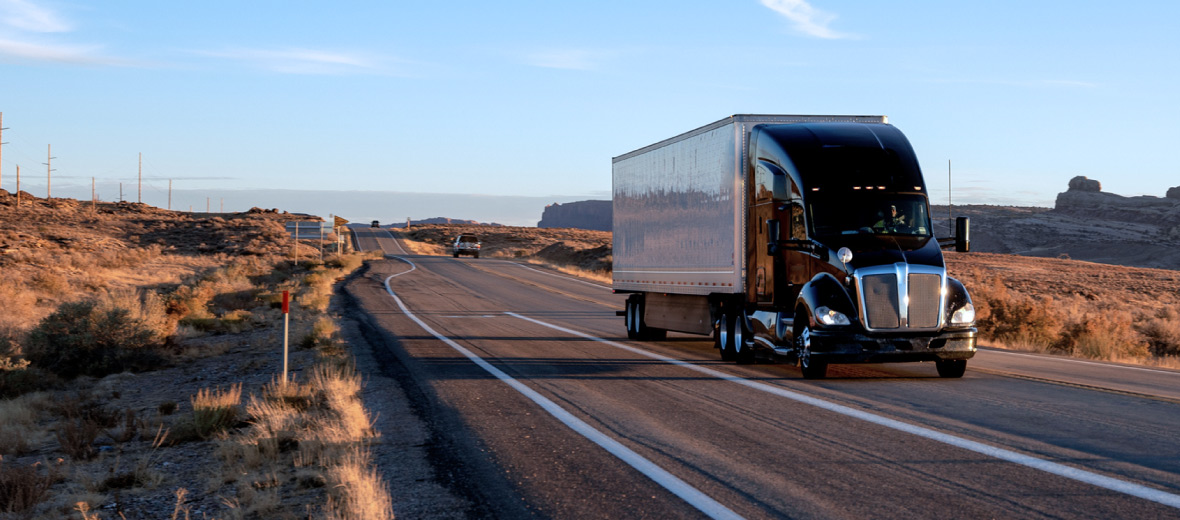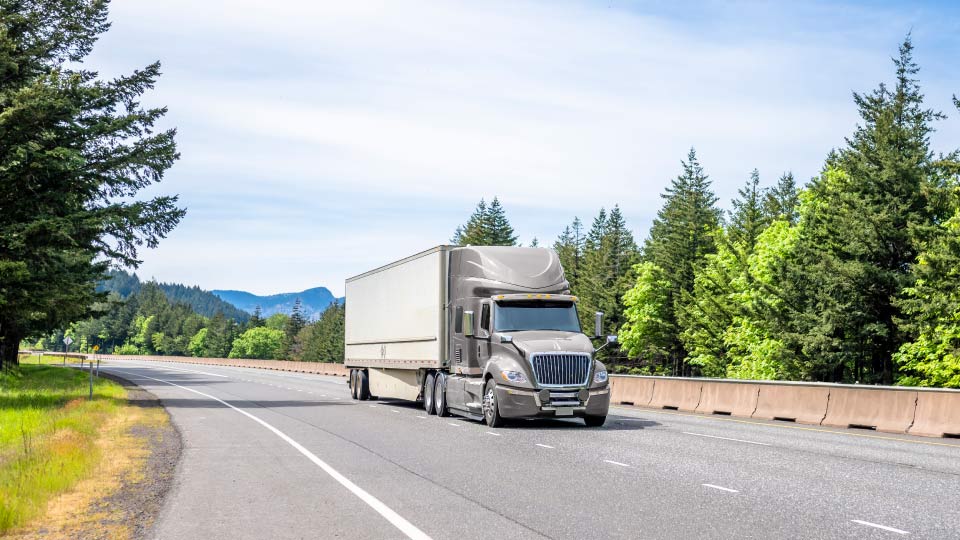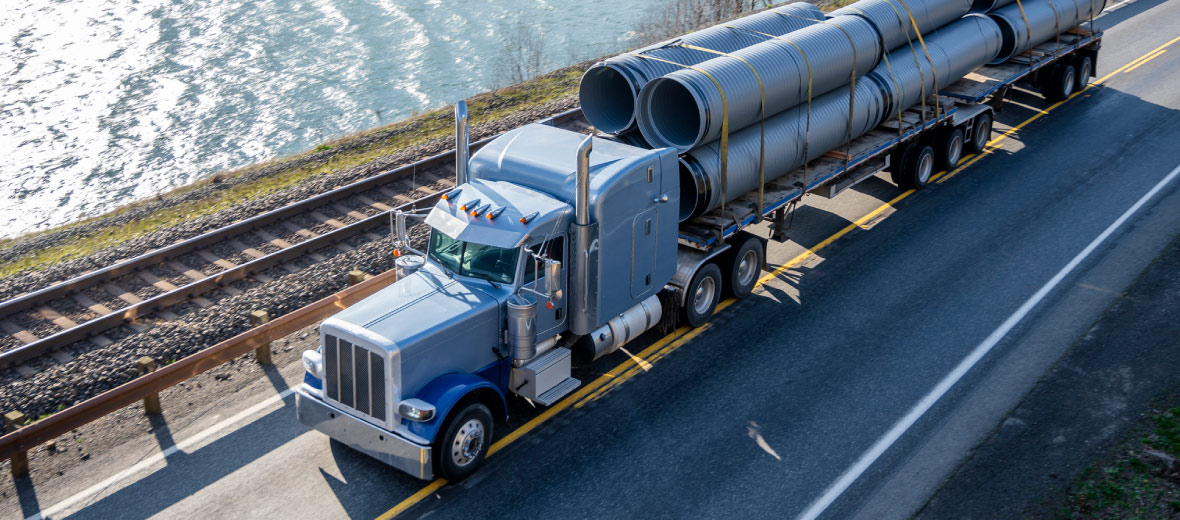Understanding ELD Exemptions: FMCSA Rules Guide
Who is exempt from the ELD mandate? Read the list of ELD exemptions from the FMCSA.

The ELD rule makes sure that commercial truck drivers accurately record their hours using electronic devices, improving safety. Some e-log exemptions exist based on business scope, vehicle age, and type. Who's exempt? We'll cover all ELD exemptions to help you avoid costly mistakes.
See also:
Quick guide to the FMCSA's ELD mandate
NMFTA raises the bar on ELD security standards
Who is ELD Exempt?
You can receive ELD exemption status based on the age of the vehicle engine or the vehicle identification number (VIN). Pre-2000 VINs are most likely exempted. However, there are cases when vehicles have had an engine replaced from another vehicle.
While the ELD rules for drivers are explicit, there are numerous e-log exemptions built into the electronic logging device rule. Exemptions are subject to updates; regulations may change.
Here is the list of FMCSA ELD exemptions from the official website. These are among the most common ELD exemptions found.
ELD rule exceptions - drivers not required to use ELDs
- Those using paper logs for no more than 8 days in a 30-day period.
- Driveaway-towaway drivers (where the driven vehicle is the commodity) or transporting a motorhome or recreation vehicle trailer.
- Drivers of trucks and vehicles manufactured before model year 2000.
- Unique drivers with specialized exemptions given to them.
Additional categories of ELD exemptions
- Driveaway-Towaway Operations: Vehicles driven as part of the delivery process may be exempt.
- Short-Haul Exemption: Drivers within a 150 air-mile radius returning within 14 hours may be exempt.
- Agricultural Exemption: Certain agricultural operations, especially during planting and harvesting seasons.
- Pre-2000 Exemption: Vehicles with engines predating the model year 2000.
- Exemptions for Specific Industries: Certain industries may have exemptions based on unique operational requirements (e.g., construction industry).
Local drivers need an ELD. Local drivers may be exempt from ELD rules if they meet certain criteria regarding their usual driving distance. Important to note that even if local drivers are ELD exempt, they are not fully free from the regulations. They must still record their duty status manually via paper records.
Who does the ELD rule impact?
Generally, the ELD rule applies to commercial motor vehicles. FMCSA regulations define a commercial motor vehicle (CMV) as “any self-propelled or towed motor vehicle used on a highway in interstate commerce to transport passengers or property” when the vehicle:
- Has a total weight equaling or exceeding 10,001 pounds (4,536 kg).
- Is built or used in transporting more than eight passengers (including the driver) for pay.
- Is built or used in transporting more than 15 passengers (including the driver) without pay.
- Is used to move certain types of hazardous materials that require the display of signage.
On an individual level, those who must also comply with the ELD mandate include:
- Commercial interstate truckers (including owner operators, smaller carriers, couriers and other transportation firms).
- Drivers of buses or other public transportation vehicles.
- Canada- and Mexico-domiciled CDL drivers.
- Individuals transporting agricultural or farming products.
- Persons driving vehicles manufactured after the year 2000.
- Drivers with more than eight days of RODS logged in a month.
- Most industries whose drivers are presently mandated to complete RODS.
What does it mean to have electronic logging device exemptions?
Having an ELD waiver means that you or your organization meets the specific requirements outlined by the FMCSA to continue tracking RODS via paper forms. However, even if you are exempt, there are still risks involved with relying on paper to notate and report this critical information.
Using outdated methods like paper forms to record RODS information leaves room for the data to become misplaced, botched or costly to manage. With how imperative it is for transportation organizations to accurately report this information, it’s often beneficial to not leave the management of it to chance.
Plus, with an ELD solution, edits can be made by authorized personnel more easily in the event of an error, complete with digital notes of what was fixed. This makes managing e-logs more organized and legible for your employees to read.
It’s also important to note that ELD solutions do not inherently track speeding or other driving behaviors by themselves. They are strictly used to maintain compliance with HOS regulations.
What are the additional reasons for being ELD exempt and what types of e-log exempt trucks exist?
In addition to certain industries or individuals being ELD exempt, trucks or vehicles themselves may also receive ELD exemptions based on the age of their engines or their vehicle identification numbers (VINs).
If a commercial motor vehicle carrier has an engine manufactured on or before 2000, then the vehicle is ELD exempt. This is because an ELD needs an engine control model (ECM) and most engines manufactured prior to 2000 do not have an ECM.
When the ELD mandate was first released, there was discussion in the media about whether an eld exception for pre-2000 vehicles referred to model year or date of manufacture. On its website, the FMCSA clarifies that the exception applies to the vehicle’s engine model year: “If the engine model year is older than 2000, the driver is not subject to the ELD rule.”
Could a pickup truck or small vehicle qualify as a commercial motor vehicle?
Pickup trucks, box trucks and smaller vehicles need an ELD if they meet the weight criteria and are newer than the year 2000.
Depending on load size and other factors, non-standard semi-trucks such as pickups and box trucks may not meet exemption requirements. Vehicle type does affect exemption status. If your vehicle meets the criteria and you drive for work, the mandate may affect you.
Is it possible to gain an exemption by using a glider kit?
It’s also important to note that a glider kit won’t necessarily change a vehicle’s exemption status. A glider kit is a new cab and chassis that can be placed over an older engine and vehicle components. A glider kit with a pre-2000 engine will maintain the elog exemption because the FMCSA rules depend on engine year.
Motor carriers must maintain all documentation on motor and engine changes at their principal place of business. Drivers using glider kit vehicles should keep some of this documentation on-hand to provide necessary proof in the event of roadside inspections.
Do small carriers need to comply with the ELD rule?
Currently, no ELD exemptions exist for small companies based on size. Small carriers do still need to adhere to the ELD rule put in place.
What are vendor malfunction extensions for ELD solutions?
In the context of driver e-logs, a vendor malfunction extension is a duration allotted for a motor carrier to resolve any device-related issues. The FMCSA’s website details the different classifications of device malfunctions that can occur, although these are often considered rare. ELD manufacturers are required to consistently test and monitor their solutions’ performance, specifications and output to verify each remains keenly in line with regulations.
At Geotab, our ELD solution undergoes rigorous testing and is fully certified for use in both the U.S. and Canada. We offer all the hardware and software needed to streamline pre- and post-trip driver vehicle inspection reports (DVIRs), HOS compliance, organizational safety protocols and more. We’re proud to help organizations meet their ELD rule compliance strategies with the power of reliable, cutting-edge technology.
How do ELDs benefit my organization?
By digitally keeping record of critical data points needed for reporting purposes, ELDs help automate compliance practices and give companies greater peace of mind as they conduct operations. In addition to strengthening regulatory adherence, ELD solutions are also essential because of their ability to streamline data management and increase efficiency. Fewer paper documents circulating throughout a company can help limit disorganization, data loss and wasted productivity.
ELDs also leave less room for error and help protect organizations’ finances against noncompliance infractions. Their driver data applications make it simpler for operators to focus solely on the job and getting the rest needed to make safe and efficient trips.
To learn how to improve safety and transport and DOT compliance with Geotab, visit our ELD solutions page and book a demo today.
While Geotab recognizes our place as a self-registered ELD manufacturer and provider and we will answer questions regarding those Hours of Service (HOS) ruleset options we provide, neither Geotab nor any of its employees, officers or agents can offer legal advice to any resellers or customers concerning which HOS ruleset(s) or exemption(s) may apply to any particular situation. Please contact your local DOT department or refer to the FMCSA website at https://www.fmcsa.dot.gov/ for questions Geotab is unable to answer.
Subscribe to get industry tips and insights
The Geotab Team write about company news.
Table of Contents
- Who is ELD Exempt?
- ELD rule exceptions - drivers not required to use ELDs
- Additional categories of ELD exemptions
- Who does the ELD rule impact?
- What does it mean to have electronic logging device exemptions?
- What are the additional reasons for being ELD exempt and what types of e-log exempt trucks exist?
- Could a pickup truck or small vehicle qualify as a commercial motor vehicle?
- Is it possible to gain an exemption by using a glider kit?
- Do small carriers need to comply with the ELD rule?
- What are vendor malfunction extensions for ELD solutions?
- How do ELDs benefit my organization?
Subscribe to get industry tips and insights
Related posts

60+ trucking industry statistics: trends + outlook for 2025
April 8, 2025
6 minute read

Clean Truck Check: How to comply with California's standards [2025]
January 26, 2025
4 minute read

Trucking logistics: What is it + how it works (benefits guide)
January 17, 2025
5 minute read

FIPS 140-3 validation: What it is and what it means for Geotab customers
December 18, 2024
2 minute read


Top 7 Transportation Management Systems (TMS) Software
December 5, 2024
7 minute read